How do you define music? How do you define film music?
The question is ridiculously subjective. But there seems to be a lot of talk, and this is certainly not a new thing, about what film music is. To some, it is a soaring orchestra with huge brass pumping out the kind of melody Elgar would be jealous of, while to others, it’s a quiet piano or synthesiser, or even the side of a toaster being banged with a fork. So what is it that makes us want to define film music so narrowly?
There has long been a schism between certain sets of film music enthusiasts which has devolved into base insults, calling each other snobs, and it seems to come down to somewhat of a traditional versus alternative frame of mind. One especially contentious subject is Hildur Guðnadóttir’s supremely avant-garde score for Chernobyl (which won her an Emmy award). I’ve seen many praising her work, which saw the composer create a score using sounds she recorded from a decommissioned Lithuanian nuclear power plant, but also some talking about it with a degree of contempt, boiling it down to nonsense sounds that supposedly have no business being called film music.
This is not a new phenomenon, and also happens with more traditional soundtracks where they are generally decried en masse. But what this wave of critique reminds me of is the speech the fictional food critic Anton Ego gives at the end of Pixar’s Ratatouille:
"The bitter truth we critics must face is that in the grand scheme of things, the average piece of junk is probably more meaningful than our criticism designating it so. But there are times when a critic truly risks something, and that is in the discovery and defence of the new. The world is often unkind to new talent, new creations."
As a latex mutant sticking out of a guy’s stomach once said to Arnold – open your mind.
Rant over. Let’s review some soundtracks.
MONOS (Invada/Lakeshore)
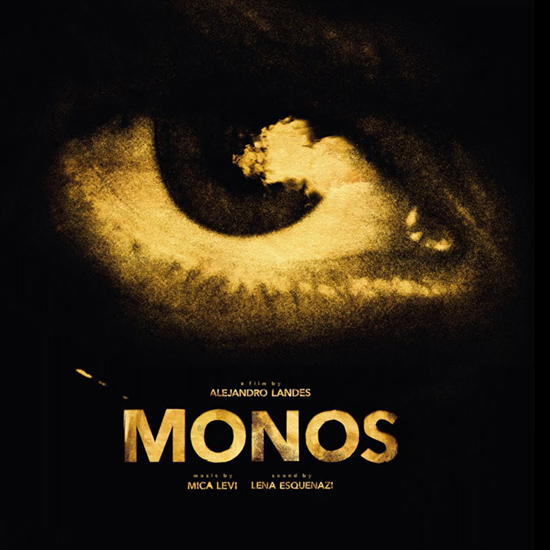
It seems to be an inevitability that whenever a new Mica Levi score comes along, it gets showered with praise. Of course, this is correct, and nothing has changed with Monos – a powerful yet intimate clash of gorgeous melody and crunching dissonance. Levi has shown previously that her ability to write a tune that instantly buries itself in your auditory cortex is second to none, and she demonstrates that again here with a brief but haunting whistle that mingles with a pulsating synth line and a reflective, somewhat childish woodwind phrase that’s later violated and transfigured into something much more threatening. Listeners may be surprised by how traditional some of Monos dares to be, but prepare to have the rug pulled out from under your feet in the best way possible. Monos is a stunner, and maybe Levi’s best soundtrack yet.
IT: CHAPTER 2 (Watertower Music)
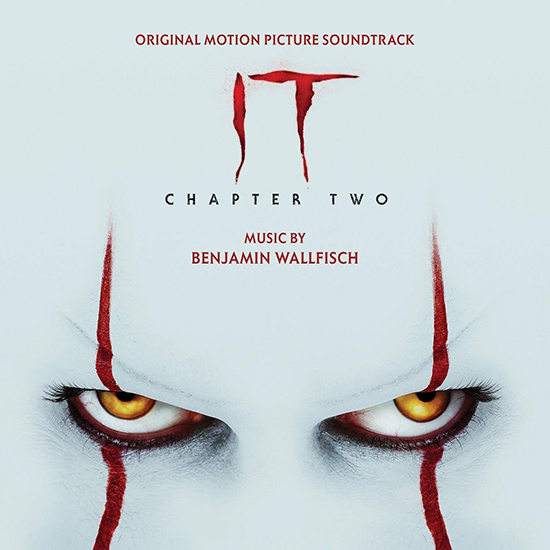
Picking up 27 years after the previous film, It: Chapter 2, and Benjamin Wallfisch’s score, begins with a reminder of times past, reprising the same evocative piano theme that opened Chapter 1. It maintains the same sense of twisted nostalgia, of reflecting on something that was an indispensable part of your childhood but is also a signpost to a past trauma. There’s an early track that sounds like it emerged from the same place as Danny Elfman’s best gothic horror work – and that’s absolutely a compliment – especially as a contrast to the harsh and aggressive soundscape Wallfisch uses to represent the horror of Derry and It. That horrifying cacophony marks a dominant presence, and due to both the persistence of terror in the narrative and the sheer length of the album, it may test your aural constitution quite a bit. The score is wrapped up beautifully, with Wallfisch once again cementing himself as one of the best composers working today; my only concern is the length of the album. At 102 minutes, it’s a long listen and perhaps a difficult one. But if you are going to do that, you should probably kiss your nerves goodbye.
THE GOLDFINCH (Watertower Music)
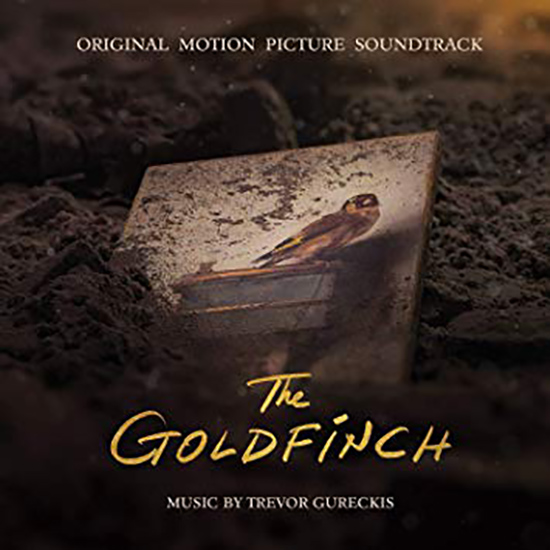
The film, based on a Pulitzer-winning novel, was savaged by critics when it debuted at the 2019 Toronto International Film Festival, so I immediately came to this soundtrack with a lingering doubt that I’ll ever see the film it’s attached to. Okay, there’s no lingering doubt – I had no interest before everyone panned it. But we all know scores that have gone on to be appreciated, even beloved, despite belonging to less than popular films. Is the music for The Goldfinch going to be one of them? Maybe. I don’t think it’s exceptional, but it has a dreamy, hazy deal going on that I enjoyed along with good use of solo piano. I could sure listen to it again.
ERICA (Sony Computer Entertainment)
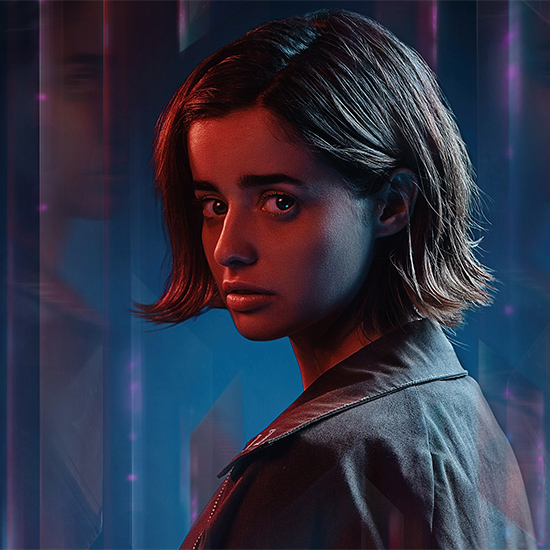
The reason Austin Wintory’s video game Erica is here is that it’s just immense. It’s a conceptually deeper score than you might imagine, and after a typically gorgeous opening track with a sumptuous melody played on cello and later violin, the listener is immediately treated to an in-game torch song, complete with a scratchy vinyl-effects layer. This immediately puts you on guard, and it effortlessly switches between threatening and wistful regret, with Wintory creating a musical narrative, but an almost subconscious one at that. It’s wonderfully hypnotic and Wintory uses this to draw in and then unsettle, particularly with reprises of the aforementioned torch song. It’s beautiful, sad, scary, but perhaps most importantly it’s reflective, with a definite sense of retracing some historical, perhaps familial steps.
HALLOWEEN: EXPANDED (Sacred Bones/Waxwork)
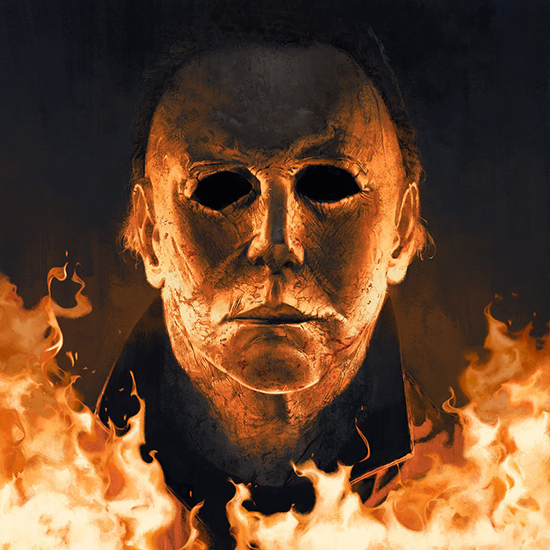
Last year, The Shape (a.k.a. Michael Myers) returned to horror cinema, and so did John Carpenter, this time restricting himself with the composing role along with son Cody and godson Daniel "Ray’s Son" Davies. And just like Michael, the score they composed for the confusingly-titled Halloween is back, this time with a pumpkin full of extra tracks; in case you’re unfamiliar with that measurement, that’s 23 previously unreleased cues added to the mix. What was interesting with the score is the way the trio returned to those original core themes and augmented them with new colours and texture. They didn’t try and reinvent them, but rather they created the new pieces to complement them. The extra tracks help round out the listening experience, which makes for a more satisfying album than the original soundtrack.
ANTICHRIST (Cold Spring)

With Halloween approaching, it’s no surprise to see more horror scores come out the woodwork, and while there’s a trio of great releases from Waxwork, let’s start with the vinyl reissue of the soundtrack to Lars Von Trier’s Antichrist. What’s instantly surprising here is that the music is all on one side, with the other side blank except for a slogan etched into it in a medieval typeface: ‘NATURE IS SATAN’S CHURCH’. The music itself is mostly the score by Kristian Eidnes Andersen, along with two pieces from Handel’s Lascia Ch’io Pianga aria, from his opera Rinaldo. These present themselves as somewhat of a safe space from the score, which feels like it was recorded in the bowels of hell and wants to break out. It’s an interesting release and the pressing is clear with an excellent focus on low frequencies, which makes for a fascinating listen.
FRIDAY THE 13TH PART VI: JASON LIVES (Waxwork)
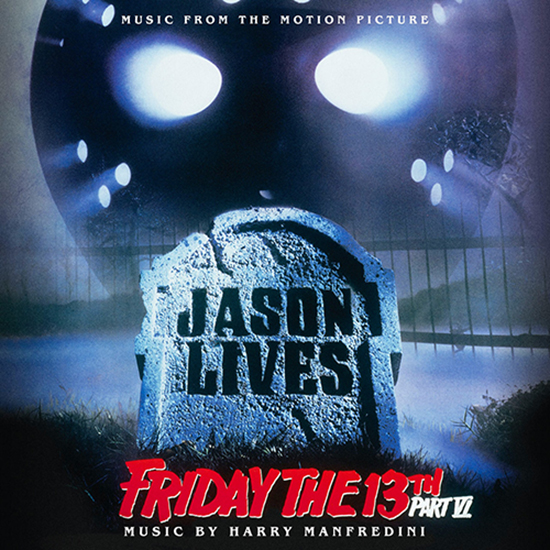
Jason Voorhees returns for the fourth time (remember, part one was his mom and part five was Roy) with Harry Manfredini’s Jason Lives. Like the film, the score is a lot of fun, with the opening tracks where Jason is resurrected bringing forth the requisite portentous brass and frantic violins, along with the wonderfully evocative use of bells. Jason’s six-note motif is used well to propel the action along, and the only problem I have is that the Alice Cooper tracks aren’t on here, but that’s a small nitpick.
NIGHT OF THE LIVING DEAD (Waxwork)
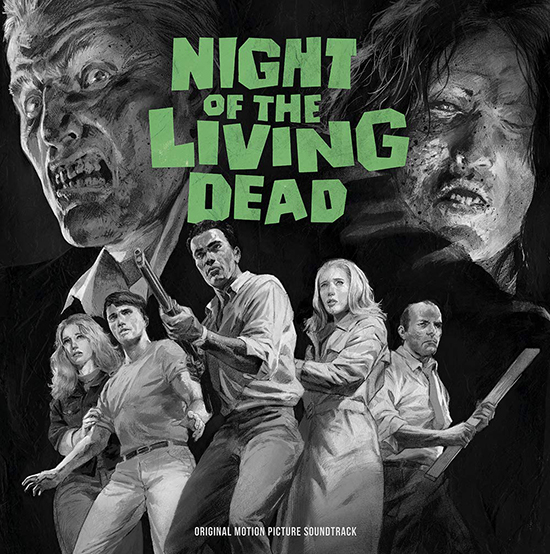
Another treat is the 50th-anniversary edition of Night of the Living Dead, which Waxwork has put together with Image Ten, the production company the late George A. Romero helped found to make the film. The film’s soundtrack was created with library music, and here they’ve sourced every piece to recreate the complete experience for the first time – and what an experience it is. It’s a pretty amazing score that was put together from old TV shows and movies such as 1959’s Teenagers From Outer Space, and it’s wonderfully foreboding and full of inevitability and fits the film like a glove.
THE ‘BURBS (Waxwork)
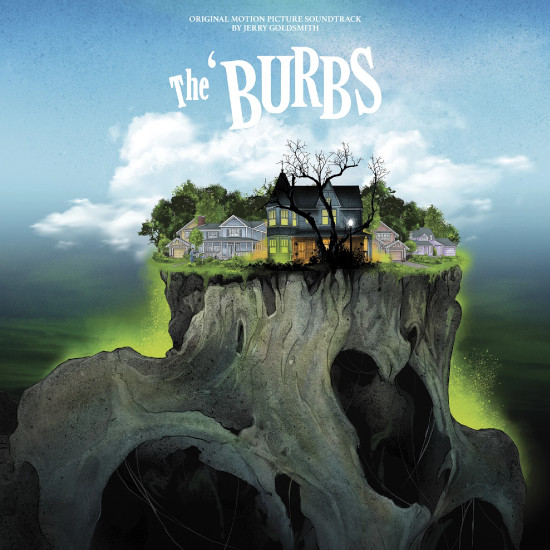
Following is another great spooky score from composer Jerry Goldsmith, for the 1989 horror-comedy. Goldsmith always had a special relationship with director Joe Dante and that shows here, with a marvellously macabre and terrifyingly innovative score that demonstrates Goldsmith’s talent by blending orchestra and synth. What follows is a pseudo-Gothic odyssey that would make Danny Elfman jealous, with Goldsmith’s trademark suburban melodies and the occasional ribbing of his previous music; in this case, his score for Patton. Both pressings are fantastic, with Night Of The Living Dead obviously having somewhat of an inferior source, and are as quiet as you can wish for.
PLANET OF THE APES: Original Series Film Soundtrack Collection (La-La Land)

Speaking of Goldsmith, one of his best and most important scores has finally been released in its ultimate form, along with its sequels. Planet Of The Apes has long been thought of as Goldsmith’s magnum opus, and it’s now appeared in a box set along with its sequel scores, with the set containing Planet Of The Apes, Beneath The Planet Of The Apes (Leonard Rosenman), Escape From The Planet Of The Apes (Goldsmith), Conquest Of The Planet Of The Apes (Tom Scott) and Battle For The Planet Of The Apes (Rosenman), all remastered. The original score is featured here complete and with original overlays, and it sounds incredible. All of the music here has merit, especially Goldsmith’s Escape, which has a funkier and more satirical feel, and the sound quality is so good you can hear the mixing bowls echo around you.
DRACULA /THE CURSE OF FRANKENSTEIN (Tadlow Music)
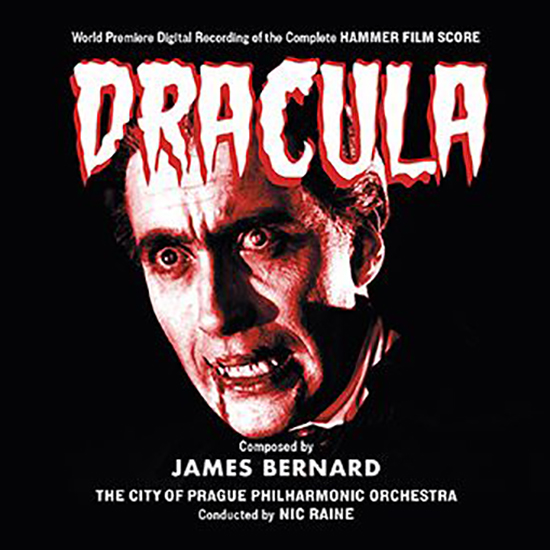
But the best has perhaps been saved for last, with another horrific delight in the guise of a brand new reconstruction and recording of James Bernard’s scores to the Hammer classics. Bernard was famous for matching his catchy main themes to the syllables of the film’s title character – for example, "Dra-cu-la" – and those themes lay a base for these wonderful gothic symphonies that walk along the razor’s edge of romanticism and horror. The composer’s writing for brass especially was virtuosic, and he was a master of the slow burn, tensely building up to those bombastic and furious explosions of themes on brass. Both scores are reproduced in a beautifully clean and striking recording, an exemplary example of not only Bernard’s music but also the dedication to restoring his masterworks, and there’s a fabulous bonus track of a suite using themes from the film composed and arranged by Leigh Phillips. With the superior recording and great liner notes (by Bernard biographer David Huckvale), one can only hope there will be more for us to sink… nope, not doing it.

